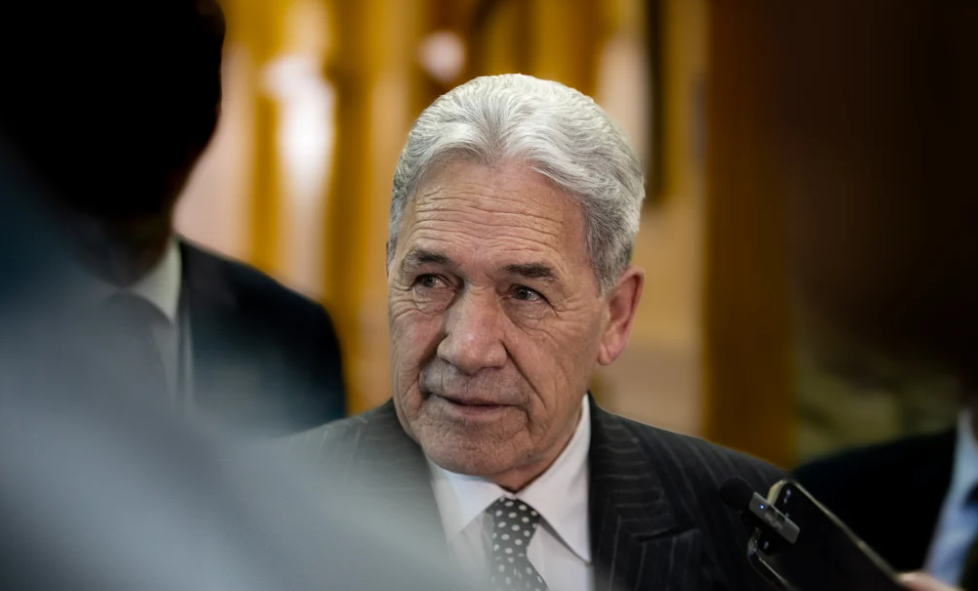
NZ First leader Winston Peters has threatened the prospect of more regulation for Fonterra if the dairy giant presses ahead with plans to sell its iconic brands to French company Lactalis.
But he is unlikely to find support for that from coalition partners, given National and ACT have said farmers should be allowed to decide for themselves.
Peters last week criticised the proposal to sell Fonterra's retail brands including Anchor and Mainland for more than $3.8 billion, with the inclusion of Bega licences held by Fonterra's Australian business bringing the total sale above $4.2b.
He has now published an "open letter to the farmers" cautioning them not to accept the deal expected to settle in the first half of next year, subject to conditions including approvals from farmer shareholders and regulators.

"The sale terms provide everything you need to know: after three years Lactalis can terminate milk supply from Fonterra for Anchor and Mainland," Peters wrote.
"Farmers, under this deal you will not control the very thing that has underpinned your success for generations: quality."
His letter said that if the deal proceeded, "then perhaps we need to revisit the regulatory environment for Fonterra".
"Fonterra is required to sell a portion of its raw milk to other New Zealand producers, and these rules have been relaxed in recent years.
"Without the value-add of consumer brands owned by Fonterra, it is reasonable to ask whether Fonterra should sell more of its milk to other producers so they can develop New Zealand products."
RNZ has sought comment from Fonterra, as well as Prime Minister Christopher Luxon and Regulations Minister David Seymour.
'Long journey for shareholders'
Fonterra's chairperson Peter McBride said in August this year farmers had invested into the company over time and capital was being returned to them and would be reinvested into regional New Zealand.
"It has been a long journey for Fonterra shareholders. It is about giving them back some of the commitments they have made to the company over a long time, so it is significant for farmers," he said.
Even a smaller farm producing 100,000kg of milk solids a year would be expected to net a $200,000 payout from the deal.
Asked about Peters' position, Luxon said: "politicians shouldn't be telling farmers what to do".
"[Winston Peters is] entitled to a view of what he wants. But I'm just saying to you, farmers will make that decision - not Winston Peters and not Chris Luxon. We can have our respective reckons and views - that's fine, but ultimately it's a decision for farmers, and they're quite capable of making the decision."
Seymour, who is also leader of the ACT party and deputy prime minister, last week also said it was up to Fonterra's shareholders to decide what should be sold.
"I don't think politicians should try and tell businesspeople how to run their businesses ... this is not a socialist country.
"Fonterra is a company owned by Fonterra shareholders. It's up to them. We don't all own it, if we did then we would be a communist country and I'm opposed to that."
Labour has said the sale of "iconic Kiwi brands" would be a sad day, but ultimately it was up to farmers to make the decision.
Fonterra leadership criticised
Peters' letter also accused Fonterra's leadership of being missing in action.
"Where is the Fonterra executive? They have not been open and upfront. There has been a casual easiness about this sale, reported by a pliant media and welcomed by middle manager analysts who couldn't run a tuck shop and don't know what it means to have their livelihoods at risk," he wrote.
He acknowledged Fonterra had fronted to media in August, but said they declined interviews last week, and an interview from Fonterra's council chairperson James Barron this week offered "limp defences of the serious questions we have asked".
Peters said executives had twice declined to present their arguments to select committees.
"This, from a company that is a creature of statute and owes its existence to legislation passed in 2001 providing favourable regulatory settings.
"Their 'she'll be right' mentality is not the sign of hard-nosed commercial realist. That is the sign of people who have been sucked in and are expecting you to be too."














